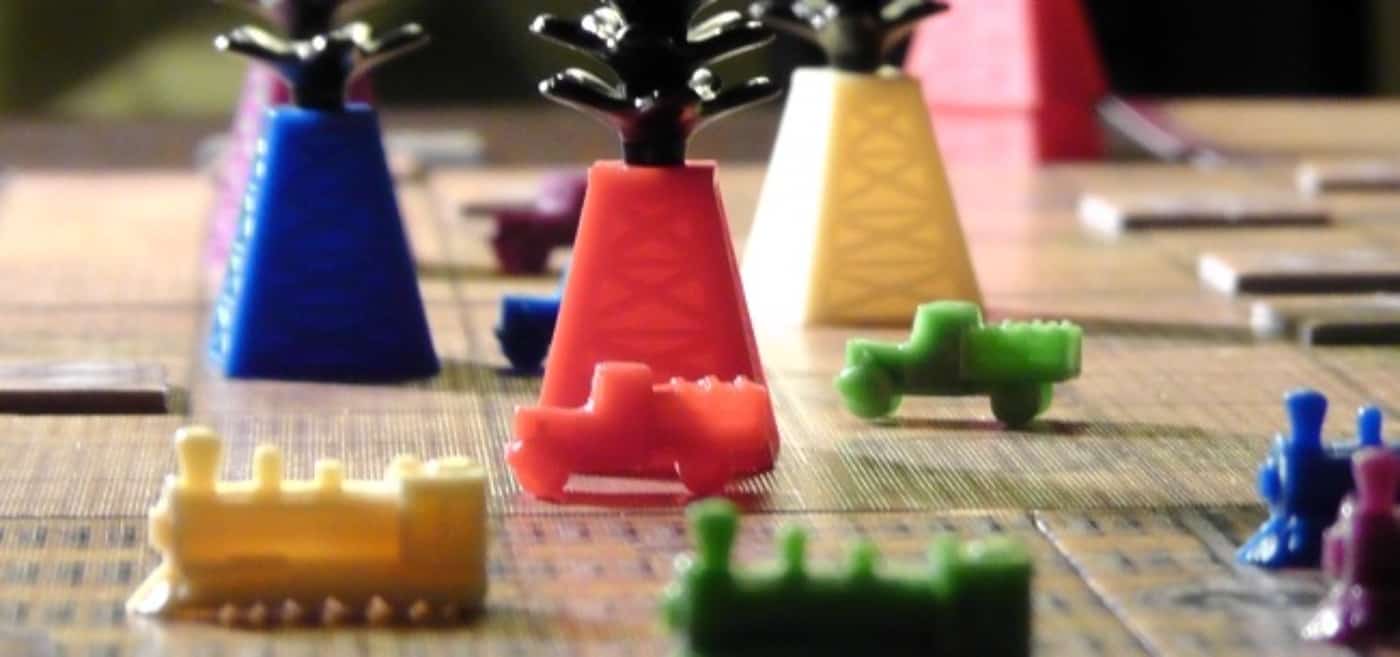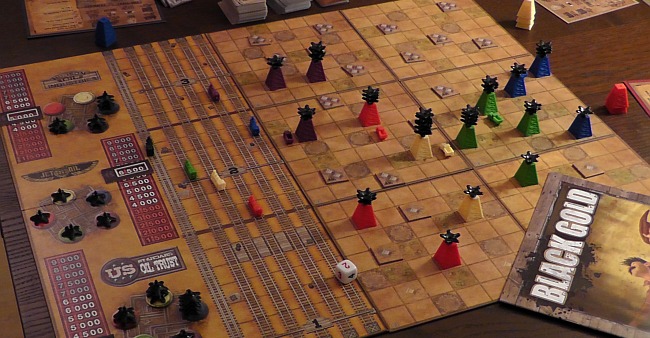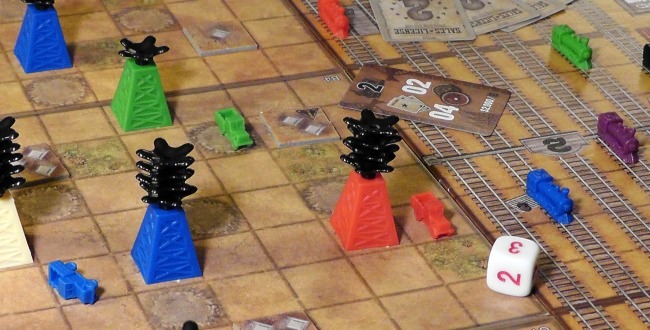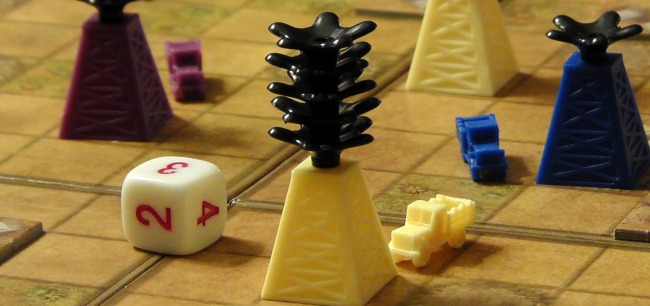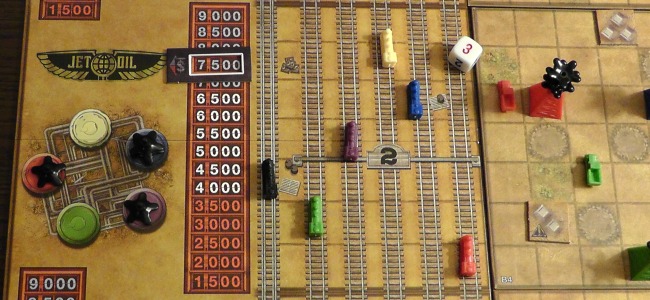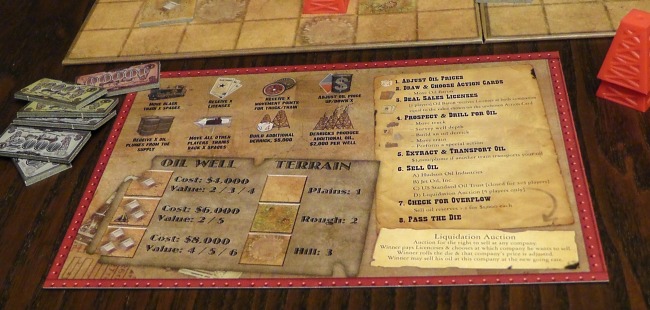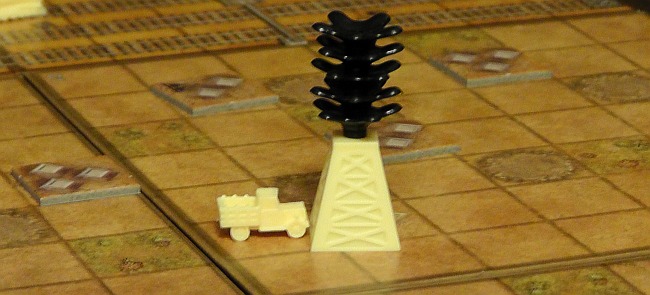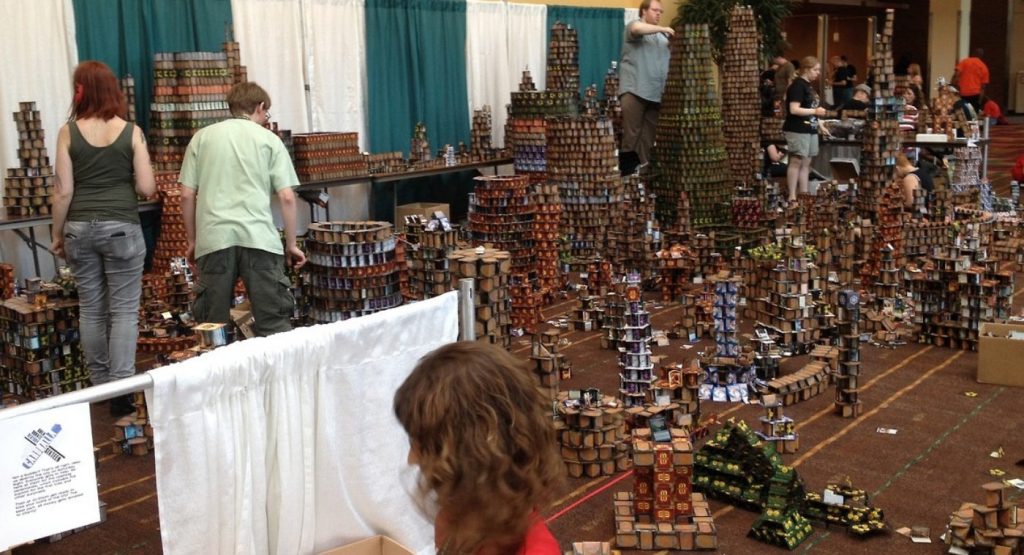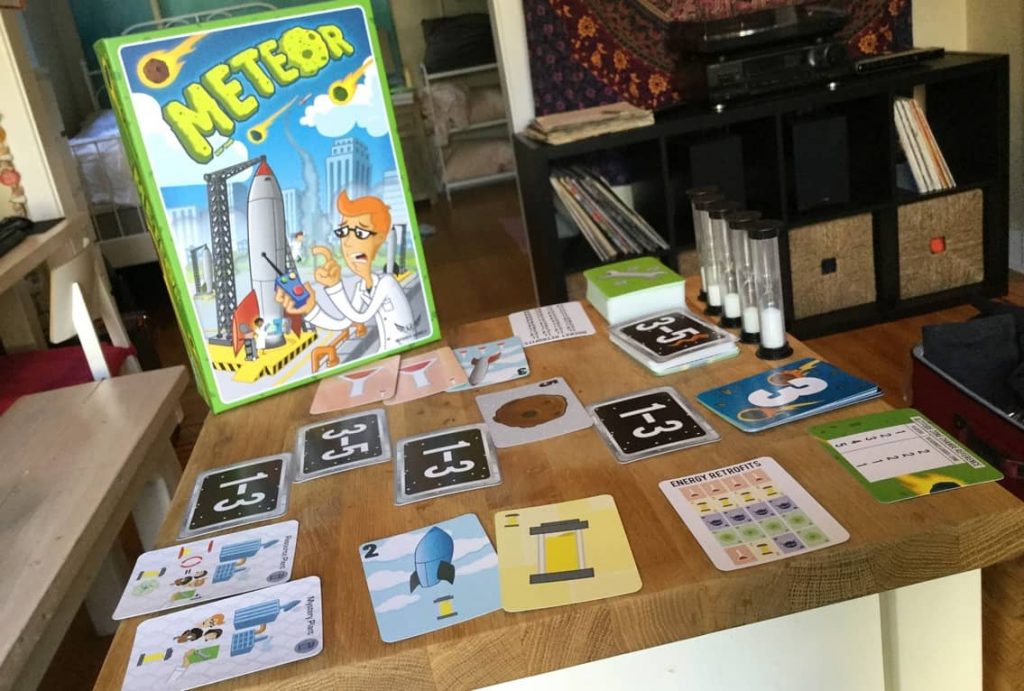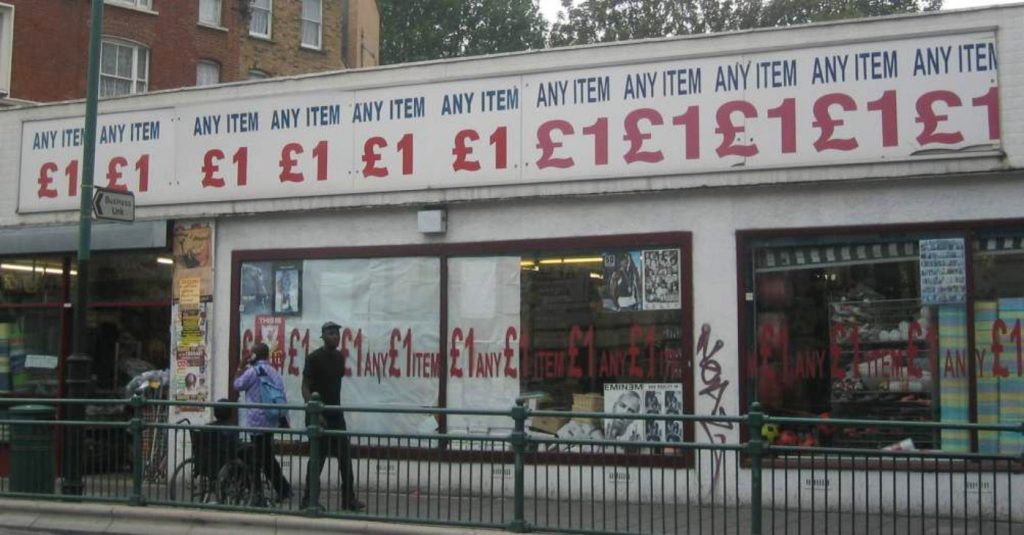Quinns: We know what you’re thinking. You’re thinking “SU&SD, what I really want is a board game about being an oil prospector, except with all the tension and exclusively brutal interaction of a wrestling match.” Well today’s your lucky day!We’re reviewing Black Gold, a game of racing across Texas in a pick-up truck, trying to build wells before your opponents, as well as fierce, arena-like auctions where everyone bids for the right to sell their oil. There Will Be Blood? Yes. Yes, there will.
Paul: You know what? This is the sort of game I wish Monopoly was. A capitalist, pugilist slugging-it-out where the only thing that matters is money and how much of it you can wrench out of the hands of others. And it doesn’t have disgusting paper notes in, either, so that’s another pro. I’m not really sure there will be blood, but there will be a lot of oil and an awful lot of very cruel business practices…
Quinns: I’ll give you another reason it’s the slicker game than Monopoly. These components! Tiny pick-up trucks! Tiny trains! Tiny derricks that squirt tiny plumes of oil into the air! Seeing the spread of multi-coloured derricks in a five player game is like a little party on your table. It’s almost enough to make you forget about the stress of your truck being stuck behind a mountain, your oil-bearing train being behind schedule, and that you don’t have a hope in hell of winning the upcoming auction at the company where you so wisely chose to stash all of your oil.
There are three reasons why the auctions in this game have such teeth:
ONE! The prices at each of the game’s three companies fluctuate each turn. Everybody wants to sell high, nobody wants to sell low.
TWO! If you have more than two plumes of oil in a company’s tank and you lose the auction to sell it, that oil “overflows”. It’s lost. If you’ve seen There Will Be Blood, this can be compared to not so much drinking someone else’s milkshake as upending your own into your lap.
THREE! You don’t bid with cash. You bid with cards called Sales Licenses, and everyone’s encouraged to keep these hidden in their pocket. This is awesome in itself, because it means a lot of leaning back from the table to count your licenses like you’re in some backroom poker game, but what’s more awesome is that it’s legal for people to bid more than what they’re holding just so long as they don’t win the auction (at which point they lose half their licenses and the auction happens again).
In other words, everybody’s encouraged to participate in auctions and drive the price up just to scrape more sales licenses from their opponents’ hands.
You will routinely win an important auction in Black Gold and feel like you need a lie down afterwards. But you can sleep when you’re dead, boystuff! There’s money to be made!
Paul: You can already see the amount of bluffing and bickering this game is going to generate. While Monopoly has you endlessly orbiting the same board, testing your luck over and over to see where you land, Black Gold is very, very much about directly interacting with every player on every turn. You make your money as you make your choices, not with a roll of a die. And, God, that’s so much better than roll-and-move-rubbish. Let’s look at some of the other game mechanics too:
Each turn, players choose from a selection of cards that allow them different actions in different quantities. Some give a great deal of movement points, allowing them to surge their trucks or trains ahead of the pack. Other cards inflate the price of their oil or allow them extra sales licenses. Everyone gets to see what cards everyone else has picked, so you get an idea of what your opponents are aiming for, but you’ll never know the exact value of the wad of sales licenses in their pocket.
If you trundle your truck across Texas you get to drive past oil deposits and prospect, to see how rich the wells might be. Thrust your train forward, and you lengthen your supply line. If your train hasn’t travelled as far as your oil wells, you’re in trouble, as you’re not actually able to transport your oil back to make money. However, if another player’s train is that far ahead you can pay them a transport fee. Obviously it pays to send your own trains surging ahead, in the hope that other overstretched prospectors have to rely on you to send their sludge home.
Quinns:My defining memory of the last game we played was one of mounting horror. The game ends when a special black train reaches the edge of the board, symbolising the arrival of the “Big Oil” companies that buy up anything and everything. Predictably, at this point the player with the most money is the winner, so towards the tail-end of this game I made the decision to stop ploughing cash into new derricks and simply make sure I sold every drop of my oil at a high price.
It was agony. As oil kept pouring in for everybody else and they kept trundling around and yelping excitedly, I just sat there, amassing sales licenses and watching the auction board like a hawk. Was this idiocy? And then, all of a sudden, that black train just… stopped moving, as it’s liable to do. I needed the game to end and it just wouldn’t.
Finally, terribly, the train crossed the line and we all counted up our cash. And do you know what? I was within spitting distance of the winner. But my god, what a tense finish that had been.
Paul: I think this game is absolutely the antidote to Monop-
Quinns: How are you still talking about Monopoly!
Paul: Because! If anyone out there thinks that board games really have to be about ruthless, cut-throat capitalism, then this is a fantastic alternative to Monopoly. That ever-advancing black train, the always hidden sales licenses that both you and your opponents sit on, the bidding for oil you desperately have to sell before you lose it. This game has inertia, it moves, it’s all about making big-money decisions quickly, about out-thinking your rivals, about grabbing a chance before it sinks forever in the Texas sand. Fine, I’ll admit it, Monopoly is an okay game, but this is so much better. It feels like big business.
Quinns:You’re big business.
Paul:Damn right. You’re not going to keep that in, are you?
Quinns:Of course not. I can never keep it in.

